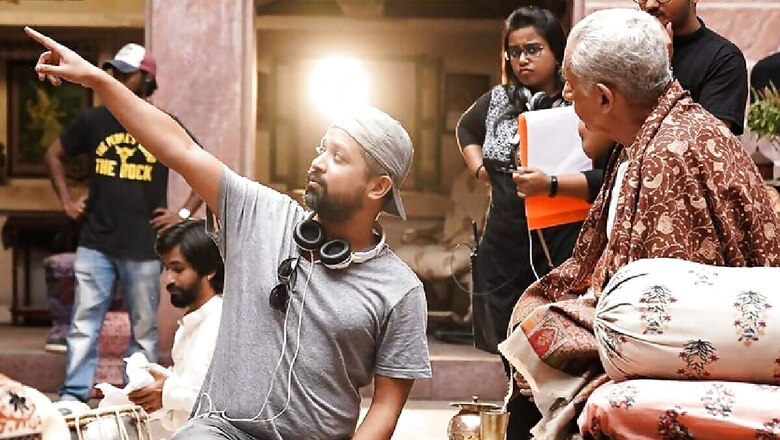
views
Indian cinema, primarily Bollywood, has always relied on music. From full length tracks in between scenes to melodious background score for a particularly emotional moment, music has been a part of the symbiosis.
This year, the Amazon Prime web series Bandish Bandits saw the nitty-gritties of classical and Gharana music. While it relied on the perspective of the Indian youth and saw the fusion of classical and pop, a lot of its content was focused on the Rathod Gharana of Jodhpur.
Anand Tiwari, the director and co-creator of Bandish Bandish, talked about the two reasons that inspired him and writer Amritpal Singh Bindra to make the show. He said that the constant internal and external struggle of the show's leads--Radhe and Tamannaah--was similar to their own internal struggle. It was the struggle of making commercial art for their own sustenance and art for art's sake.
While he grew up with classical music watching maestros like Pandit Ravishankar live, one incident was catalysing. "I also watched an entire Gharana perform," he recalled.
"While everyone knew the grandfather, the younger generations were unknown. The grandson also got to showcase his expertise, but everyone in between were reduced to back-up vocals with only two or three lines. But they were also fantastic."
Apart from the headliners Ritwik Bhowmik and Shreya Chaudhary, the show has a seasoned supporting cast that includes Naseeruddin Shah, Atul Kulkarni, Sheeba Chaddha, Rajesh Tailang and Amit Mistry.
The actors who portrayed classical singers went through rigorous training with music supervisors to ensure they looked authentic.
"It wasn't like 'listen to this song ten times and lip synch it, and we will manage the takes,'" said Anand.
While shows and films on classical music isn't as rare, the art form itself continues to face the threat of oblivion. Many classical musicians face poverty and many traditions like the ‘Guru Shishya Parampara’ isn't functional anymore.
When we asked Anand if promoting the art form was one of the goals in the creators mind, he said, "No. Because we did not want to set boundaries to how a certain form of music should be. Music is the most essential art form and the more open it gets the better it becomes. I am not a trained singer, neither am I a trained actor or director. As an untrained human being I want my art to be democratic. If I am always working within a certain parameter, how will my art evolve? Music needs to be open to changes.
"The harmonium is such an important part of Indian classical music and the violin is such an important part of Carnatic music. You cannot separate these instruments but they were not instruments that originated in India. Similarly music has to adapt, and evolve to be better. Otherwise it creates a dogma and prevents more people from following it."
"The younger generation should carry the baton and not put it on a pedestal. Because once that happens they are going to detach themselves from it," he concluded.


















Comments
0 comment